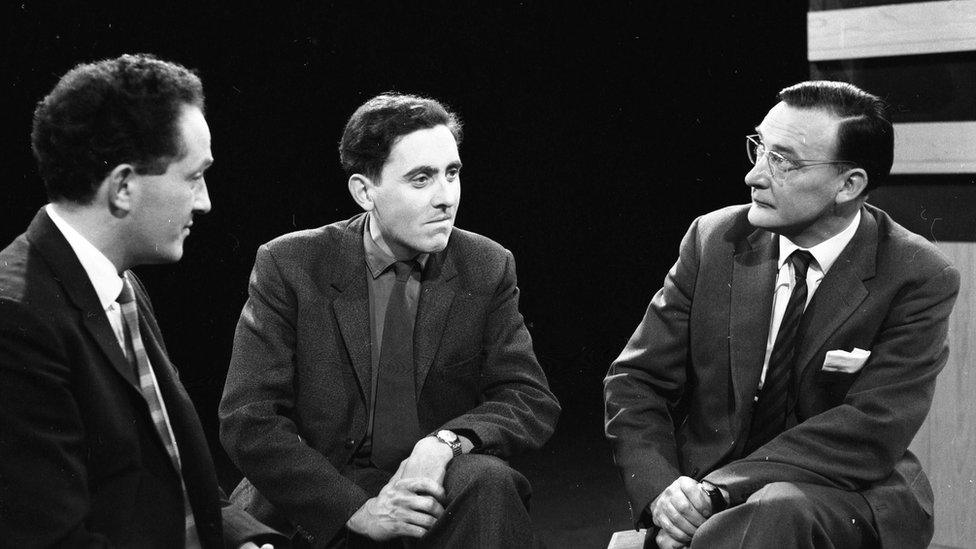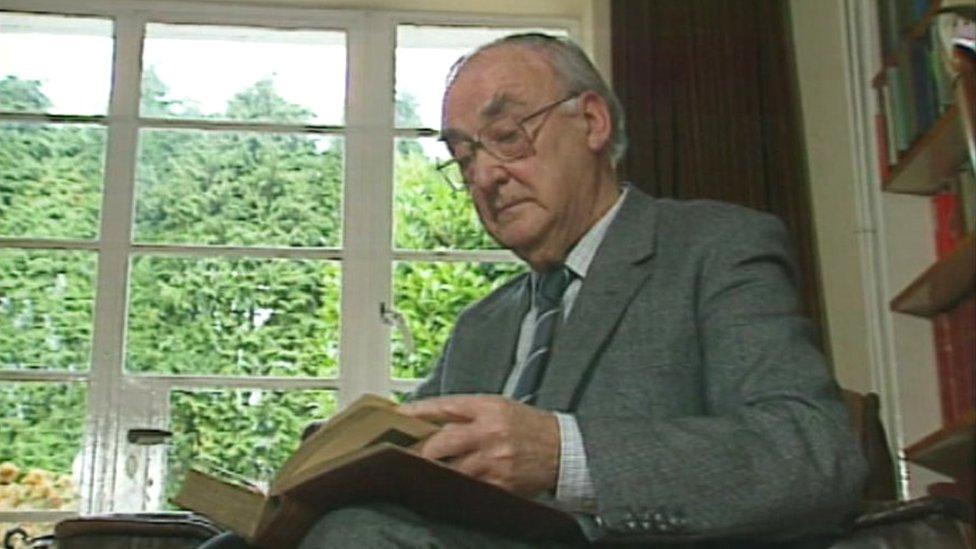Obituary: Lawyer and politician Gwilym Prys Davies
- Published

Throughout his life, Gwilym Prys Davies campaigned for devolution. He did so mainly within the Labour Party after he left Plaid Cymru in 1949.
He was the Labour candidate in the 1966 Carmarthen by-election when Gwynfor Evans became Plaid Cymru's first MP.
He was later appointed special adviser to the Welsh Secretary, John Morris.
He became a member of the House of Lords where he was an opposition spokesman on Wales, health and Northern Ireland.
Gwilym Prys Davies was born on 8 December 1923 in Llanegryn, Meirionnydd.
After serving in the Royal Navy during the Second World War, he studied law at Aberystwyth, where he met Llinos Evans who was his wife for over 50 years.
He qualified as a solicitor in 1956 and subsequently worked at a legal practice in Pontypridd.
He began his political life with Plaid Cymru before leaving the party after a left-leaning group, the Republicans, whose principles he supported, failed to change party policy.
Gwilym Prys Davies stood as a Labour candidate in the Carmarthen by-election in 1966. One of his opponents was the Plaid Cymru leader Gwynfor Evans with whom he had previously clashed over the republicans' aims.
The by-election was called after the death of Megan Lloyd George, for whom Gwilym Prys Davies had campaigned during the run-up to the general election held 15 weeks earlier.
In his autobiography, Llafur y Blynyddoedd, he said he did not know she was dying until after the final general election campaign meeting had been held.
In the by-election, Gwilym Prys Davies was beaten into second place by Gwynfor Evans who became Plaid Cymru's first MP.
Reflecting on the result, he said: "The sentence when it came in the early hours of the morning, although not wholly unexpected, was a blow...
"Mercifully I fully understood the jubilation on Carmarthen square because Gwynfor was in. And although he won at my expense I knew that I could never be less of a Welshman."

Gwilym Prys Davies, shown on the right, was one of the presenters on the Welsh language BBC programme Cenedl Hollt
After the defeat, he wished to support devolutionists within the Welsh Parliamentary Labour Party with the aim of securing "political responsibility for Welsh life".
He became a member of the Welsh Hospitals' Board and he represented the parents of children killed in the Aberfan mining disaster in their campaign to secure justice.
Following the 1974 general election, Aberavon MP John Morris, now Lord Morris of Aberavon, was appointed Secretary of State for Wales.
John Morris appointed Gwilym Prys Davies as his special adviser. His experience in the Welsh Office reinforced his view that Wales needed an elected assembly.
He was disappointed at the decision to hold a referendum on the government's devolution proposals, and felt the government of the day did not throw its authority and weight sufficiently or publicly behind the plans, which had previously been presented to the electorate in the Labour manifesto.
He described the day of the 1979 referendum - when 80% of those who cast a vote opposed Welsh devolution - as "traumatic".
The Welsh language
The Welsh language was very important to Gwilym Prys Davies and as a solicitor he pioneered the use of Welsh in court.
When he became a member of the House of Lords in 1982, he was the first person to take his oath in Welsh.
In the second chamber he was an opposition spokesman on Wales, health and Northern Ireland.
He proposed around 25 amendments to the 1993 Welsh Language Act - which were all rejected.
Despite that he felt the legislation was significant, saying: "I thought establishing a statutory Welsh Language Board was a big step forward... because there was some sort of acknowledgement that the British state had a statutory duty to promote the Welsh language."
In 2001, at a time when the debate about the impact of migration into Wales on the Welsh language was particularly febrile, he called for the establishment of an independent commission to look at ways to prevent Welsh-speaking communities "disappearing from the life of the world".
He retired from the House of Lords in May 2015.
Lord Prys-Davies's wife, Llinos, died in 2010. The couple had three daughters.
- Published29 March 2017
